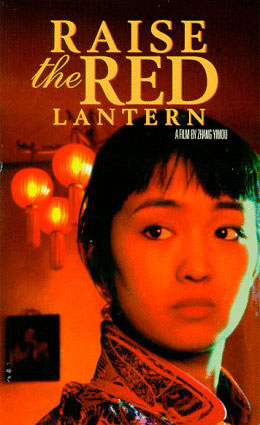The world of Chinese films one doesn't know

I love watching movies on the big screen. Before coming to China, I used to see 50-100 films a year in theaters (the average American watches just four). Most of them were foreign movies, including films of Zhang Yimou, Chen Kaige and other directors who put Chinese cinema back on the world stage in the 1980s.
One of the many surprises awaiting me in China was having lots of Chinese friends say that they really didn't like these films. I was taken aback initially by such comments. Zhang Yimou, for example, is still one of my favorite directors and Raise the Red Lantern remains one of my all-time favorite movies.
But after living in China for four years, I'm less puzzled by such views. As one Chinese friend told me, these films really have little to do with contemporary Chinese realities and mainly reinforce Western stereotypes about the Middle Kingdom. Most are historical dramas set in pre-1949 China or focus on its problems before the reform and opening up.
Chinese films about contemporary China shown on Western screens not only depict the country in a very negative way, but also go about it with seriousness. A case in point is Li Yang's 2003 film about Henan coal miners, Blind Shaft, which won awards at several major Western film festivals. This film is very dark indeed, both figuratively and literally.
I've discovered that the films Chinese watch in large numbers are comedies made by directors not known in the US. These films may not make the art-house circuit in America, but for this cinephile at least, they are funny and sophisticated and stand head and shoulders above most mainstream Hollywood films.
For example, Ning Hao's recent smash hits, Crazy Stone and Crazy Racer are all about the mad pursuit of money in today's China. But they bring to this issue a deftly humorous touch that is altogether missing in films like Blind Shaft.
Both movies are crazy stories about venal, thuggish businessmen, competing groups of bumbling criminals and con artists, and two honest men - a security chief in Crazy Stone and cyclist Geng in Crazy Racer - with the latter being defeated in their efforts to do the right thing.
The soaring divorce rate among affluent urban Chinese couples is the subject of another one of China's recent box office hits, Feng Xiaogang's 2003 film, Cell Phone. This film casts the well-known comic actors, Ge You and Zhang Guoli, as serial philanderers whose infidelity to their wives and girlfriends is uncovered through cell phones.
Ge is also Feng's leading man in his latest romantic comedy, last year's hugely popular If You Are the One, which became the highest grossing movie in China.
Ge plays an inventor who goes online to seek a wife. His quest is answered, among others, by an old male friend who has turned gay, a traditionally clad Miao woman, and the beautiful daughter of a wealthy Taiwan businessman. The latter asks Ge if he loves children and after saying "yes", he immediately gets cold feet when she tells him that she is pregnant.
While American romantic comedies typically have happy endings, If You Are the One concludes on a bittersweet note. Ge finally seems to find the woman he is looking for, airline stewardess Smiley, adeptly played by Shu Qi, who has followed him throughout the film, but meets him only after attempting to commit suicide while they are in Hokkaido.
Save for the raunchy comedy set in La Vegas, The Hangover, and The Proposal, which is all fluff compared to If You Are the One, the top box office films in the US this year were all fantasy/science fiction movies. This escapist pelf has very little to say about the real world, much less American society. By contrast, recent Chinese box office hits give viewers a fascinating window into how China is quickly becoming a more urbanized and affluent society.
In addition to their low to moderate budgets, these movies have another thing in common: None have been shown in US theaters (a few were screened at film festivals). Many economists argue that China must reduce its economy's dependence on exports and rely more on the domestic market. If China's film industry stays on its current track, then it will lead the way in this direction.
The author teaches at Peking University.
 0
0 






